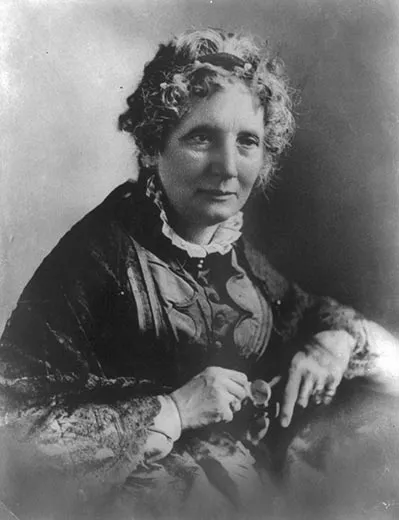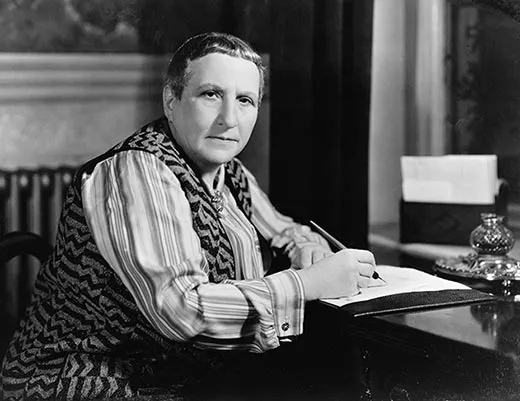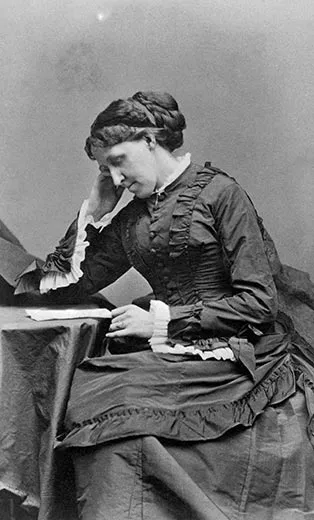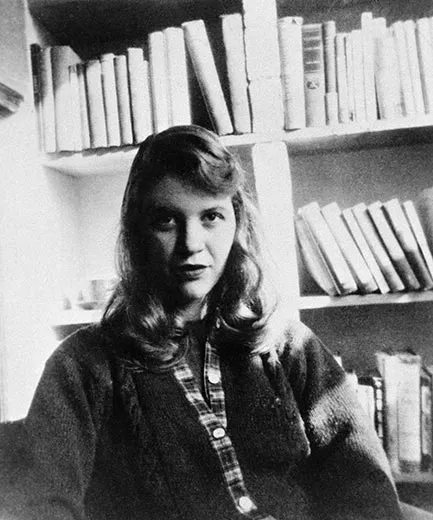Literary Landmarks: A History of American Women Writers
Author Elaine Showalter discusses the lasting influence of Harriet Beecher Stowe and why Gertrude Stein is overrated
/https://tf-cmsv2-smithsonianmag-media.s3.amazonaws.com/filer/American-writer-Gertrude-Stein-631.jpg)
Literary historian and scholar Elaine Showalter has recently published a sweeping and insightful survey of American women writers, A Jury of Her Peers: American Women Writers from Anne Bradstreet to Annie Proulx (Knopf). She is the first person to attempt this all-encompassing project.
Why do you think that no one before you has attempted to write a literary history of American women writers?
There really wasn’t a sense until the late 1970s or even the 1980s that women writers actually had a history and that it was something worth investigating. For a long time it just didn’t exist as a subject in people’s minds. And then, after that, it came up against a lot of different ideological shifts among scholars that made it seem like a really problematic thing to do. In order to write a literary history you have to make distinctions. You have to make selections. You include some writers and you exclude others. You say that some are more important than others. There was a real wave of feeling against that kind of hierarchy, against the literary cannon. Everybody began to move away from literary history to something more like an encyclopedia, where you wouldn’t make any distinctions, and you wouldn’t create any hierarchy, you would just try to list everybody separately.
My own feeling is that this is the 21st century; it’s time to move on from that. There’s no reason to be concerned about making distinctions with women writers. There are many of them; they are important, and they can withstand that type of judging…. If you don’t have a literary history, if you are really dependent on something like an encyclopedia—individual by individual—it’s very hard for women writers to be recognized in terms of their overall contribution to the American tradition. You’re taking them one at a time; you’re not making an overall argument about how American women have really shaped American culture. For teaching, there isn’t the sense: how do they fit in? How do they change the overall picture? It’s time for that argument to be made. We need a literary history and we need one for the 21st century.
How did you steel yourself for such a monumental project? What motivated you?
It was a big step. I have been wanting to do it for decades, since I wrote my first book on English women writers. But it’s obviously an enormous task. Generally, it’s not a task that’s undertaken by one person. If you look at women’s history now, they tend to be written by huge committees with huge editorial boards [and] many, many contributors, each of whom takes on a small part, and even then a lot of these projects take decades to finish. I wanted to do it alone because I thought, there has to be a “the buck stops here” sense of responsibility. A single person is much more likely to have a strong opinion than a committee. What we need now is somebody willing to say: this is an important writer, this is not such an important writer, and that is something a committee will never do.
Did you discover any writers in the course of researching and writing this book?
There were many—so many. And in fact, I’m still finding them even though the book is done! Probably the biggest surprise, and the one that I found most moving, was Julia Ward Howe, the author of the “Battle Hymn of the Republic.” She published this anonymous book Passion Flowers in 1853, which was about her marriage and [then] her husband threatened that he would divorce her and take the children, which he could have done! [After the disclosure that she was the author, Howe’s husband refused to speak to her for three months.] That was stunning. I was tremendously impressed by the poems and by the whole life of Julia Ward Howe.
Were there writers you felt you had to include, but who disappointed you when you went back to evaluate their work?
Everybody mentions Gertrude Stein. She is always the one who makes it into the literary history. She was an incredible self-promoter, endlessly self-important. And I just think that her work is unreadable—absolutely unreadable. I don’t know anybody, except academics, who reads Stein. Which is not to say that there aren’t interesting bits and pieces—her play The Mother of US All [is worthwhile]. But I think she’s overrated in terms of the attention that she gets and in terms of her influence on American literature.
You write about early American writers turning to Europe for inspiration. George Sand, Maria Edgeworth, and of course George Eliot all seemed particularly influential in the nineteenth century. Did European writers ever turn to American writers for inspiration?
Harriet Beecher Stowe is at the top of the list. You have Stowe, and then you have a huge gap before you get to anybody else [who influenced European audiences]. It wouldn’t be until the end of the century, when you have a lot of Americans going over to Europe. Stowe was read all over the world. She was reviewed by Tolstoy. She was reviewed by George Sand. You really cannot find an American writer whose influence was more profound. And of course Stowe had this correspondence with George Eliot that I think is very delightful. She’s always writing to George Eliot, “my darling” and “my dear”—nobody talks to George Eliot like that. I just love it. Stowe is one of the women I wish I could have known.
I was struck by the extent to which American women writers—from Louisa May Alcott to Sylvia Plath—recurrently referred to The Tempest. Why?
The Tempest was the Shakespearean play that spoke to them most directly. If you say to people, “which play do you think influenced women writers?” I think people would probably say Romeo and Juliet, or something like that. But no, it was The Tempest. As far as I know, each woman writer who used it found it for herself. Because there was no literary history, there was not really any way for women writers to know what other women writers had done. They were drawn to The Tempest first of all because it is a myth of a new world, and it is a myth of starting over again in a new place. They powerfully identified with the figure of Miranda…. Miranda is a woman who grows up in a totally male world. She is a woman who is educated by her father, is tremendously intelligent, never sees another woman, and has to define what it means to be a woman for herself.
You write that Kate Chopin’s “The Awakening was the first novel by an American woman that was completely successful in aesthetic terms” What did you mean by this?
Moby Dick is a masterpiece, but I don’t know that people would say that it’s completely aesthetically successful. There are a lot of parts of Moby Dick that people skip if they read it now. I happen to love Moby Dick, but we Moby Dick fanatics are the ones that read everything about whaling. The Awakening is a real work of art, completely satisfying—in that sense more like a European novel of the time… So I wanted to put that [statement] in. You can’t fault The Awakening on any grounds whatsoever. I think [Harriet Beecher] Stowe is still the most underestimated American novelist. But I would have to say that there are things you can criticize in terms of structure.
Read Elaine Showalter's list of Top 10 Books by American Woman Authors That You Haven’t Read (But Should).
/https://tf-cmsv2-smithsonianmag-media.s3.amazonaws.com/accounts/headshot/books-chloe-schama-240.jpg)




/https://tf-cmsv2-smithsonianmag-media.s3.amazonaws.com/accounts/headshot/books-chloe-schama-240.jpg)